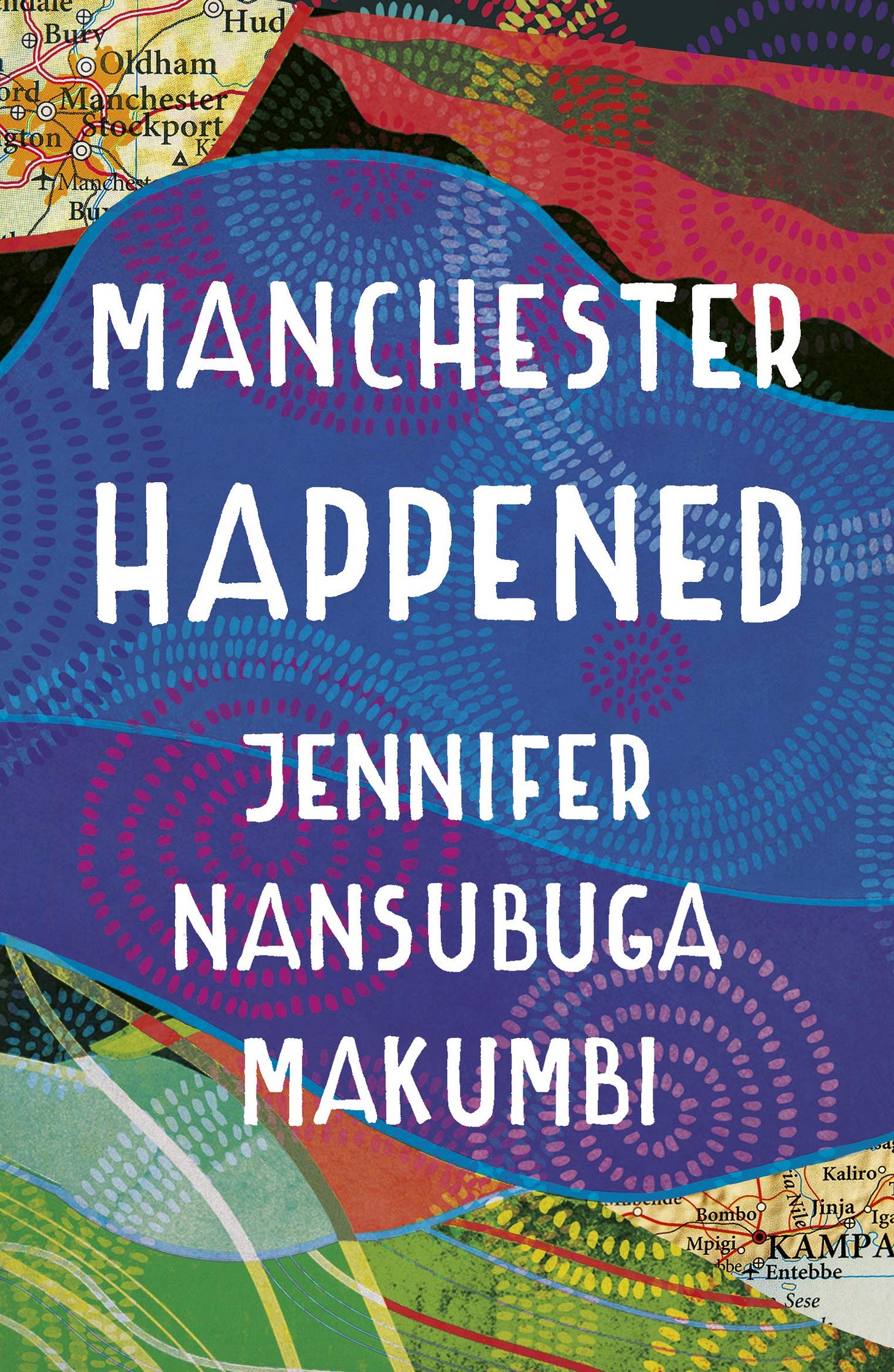Themes: Immigrant experience, complex families, aftircan diaspora, Uganda, Manchester.
Read this if: You enjoy ‘slice of life’ stories.
Don’t read this if: You want stories with tidy conclusions.
Links to purchase: Oneworld Publications, Amazon
The distance between Manchester, England and Kampala, Uganda is 6785 km, but in Jennifer Makumbi’s telling, the cities are joined at the hip. What inextricably links them are the hundreds of thousands of Ugandans who by boat, train, and plane have been making the pilgrimage to the northern English city to work, study, live, love, and die for over 100 years. That this well traveled path exists at all, is a testament to England’s colonial past. However, Manchester Happened isn’t focused on explaining or litigating the history of the two cities’ relationship. Like the title suggests, history has happened the way it did, and what interests Dr. Makumbi are the experiences of the people who have been, and continue to be, caught in its slipstream.
Manchester Happened is composed of thirteen stories split into two sections, ‘Departing’, and ‘Returning’. ‘Departing’ contains six stories of those who have left the red clay of Uganda for the stone and brick of Manchester. The stories in this section focus on the feelings of isolation of those who arrive, and their attempts to survive the sudden submersion into Western culture. Some drown, while others are able to persevere with the help of the diaspora community. Common to every arrival’s experience, are the pining for a sun now enveloped by fog, and the pain of being consigned to the bottom of the British social hierarchy on account of their africaness. They struggle against racism not only from the lily-white English, but just as often from British born blacks and immigrants from the West Indies.
The stories in ‘Returning’, focus on (as you may have guessed) those Ugandans who return to their homeland. The returners bring back with them, not only newfound money, but also newfound sensibilities, and even, in some cases, newfound families. Upon their arrival, they find a Uganda that has changed as much as they have. Chinese money, and people have flooded the capital leading to a boom in development, and a mixing of people and culture. The returners struggle again to reintegrate into a country that is both home, and foreign.
There are no duds in the collection, but there are some clear standouts. From the ‘Departing’ section, the character development in “Malik’s Door” was the high point. From the ‘Returning’ section, “My Brother Bwemage” stood out for its nuanced exploration of what constitutes a family and a culture. To give you an overall idea of the writing, here is a striking passage from the beginning of “Malik’s Door”:
They met back in the summer of 2003 when Katula was still being hunted by Immigrations. Being hunted by Immigrations was somewhat like duka-duka during the Bush War. While there were no bullets to dodge or jungle to set on fire to flush you out in Britain, it was war nonetheless. When UK Border Force captured you, they had the same satisfied look of soldiers, and some people said you got kicked by enthusiastic officials in the vans. As in war, it did not matter whether you were in pyjamas or a vest - when they got you they took you as you were. And as in war, for a fee Ugandans would sell each other to Immigrations the way neighbors sold whoever supported the wrong politician back in the early 1980s. There came a time when Katula envied the oblivion of British tramps lying drunk and dirty on the streets (a waste of a British passport) the way she had envied the oblivion of trees during the war. What made it painful was that in war everyone was on the run from the soldiers, while in Britain you’re alone amidst the cries of ‘Get them out of here.’
For anyone who enjoys reading about the experiences of diaspora, the book is worth a look. The subject is very specific, Ugndans in Manchester, but that specificity is what brings the collection to life. You feel like the author knows the characters personally, simply transcribing the stories told by the attendees at a Ugandan community gathering in Manchester. Those stories paint a vivid picture of lives bifurcated by time and space, one foot in Manchester, the other still in Kampala.


